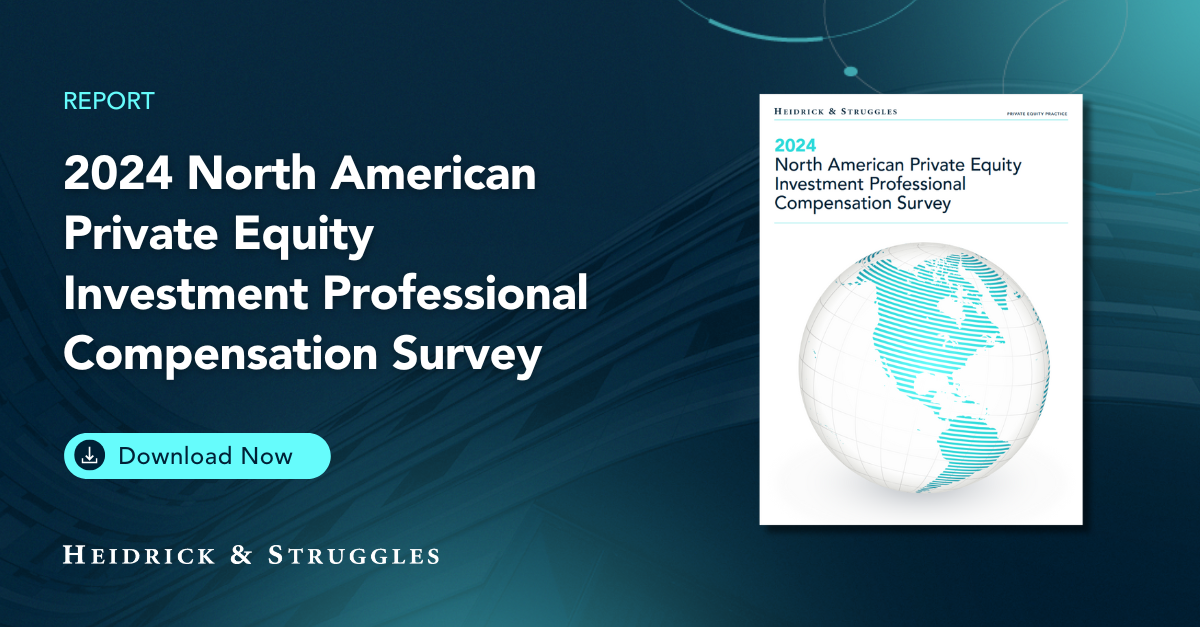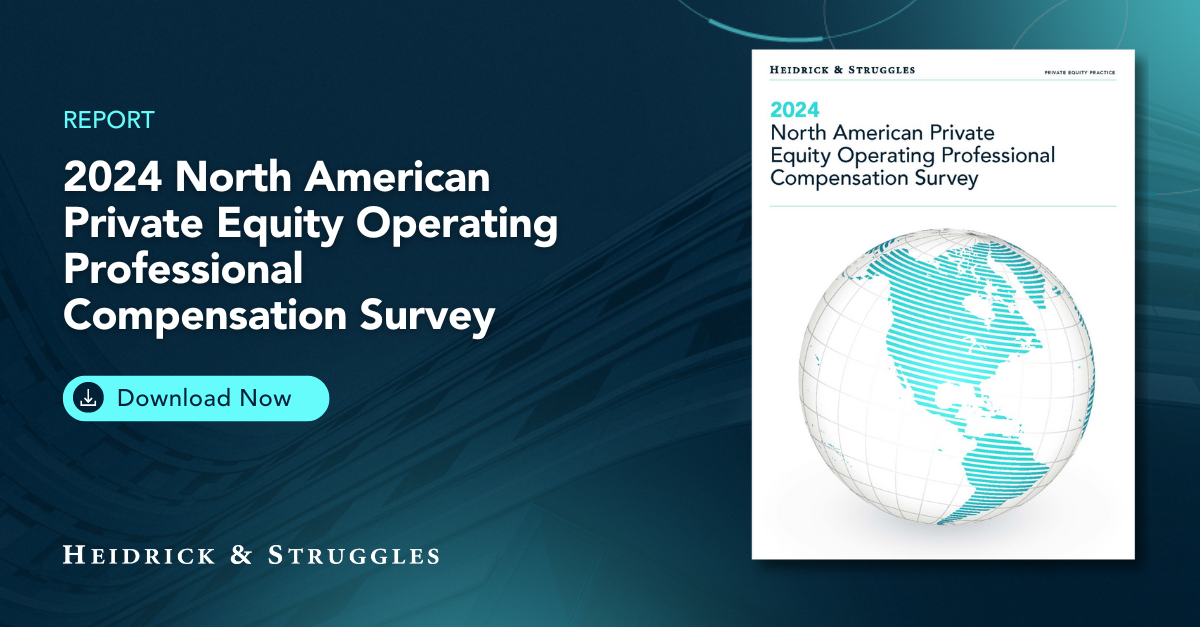Heidrick & Struggles' Private Equity Compensation 2024: Your Ultimate Guide
Mar 27 2025
In the rapidly evolving world of private equity, compensation strategies have become a critical focus for firms aiming to attract and retain top-tier talent. Heidrick & Struggles, a global leader in executive search and leadership consulting, has unveiled its latest insights into private equity compensation trends for 2024. This article dives deep into the nuances of private equity compensation, offering actionable insights and expert analysis for industry professionals.
As the private equity sector continues to grow, understanding compensation structures is more important than ever. Heidrick & Struggles' report provides a comprehensive overview of the latest trends, helping firms align their compensation strategies with market demands. This article will explore the key findings and their implications for both employers and employees in the private equity space.
This guide is designed to provide clarity and actionable advice for executives, HR professionals, and anyone interested in the private equity industry. With a focus on expert insights and authoritative data, you'll gain a deeper understanding of how compensation is shaping the future of private equity in 2024.
Read also:Gwenda Swearingen A Comprehensive Look Into Her Life Career And Achievements
Table of Contents
- Introduction to Heidrick & Struggles' Private Equity Compensation
- Overview of Private Equity Compensation Trends in 2024
- Key Findings from the Heidrick & Struggles Report
- Understanding Compensation Structures in Private Equity
- The Role of Equity Incentives in 2024
- How Market Conditions Influence Compensation
- A Global Perspective on Private Equity Compensation
- Challenges in Aligning Compensation with Performance
- Future Trends in Private Equity Compensation
- Conclusion and Call to Action
Introduction to Heidrick & Struggles' Private Equity Compensation
Heidrick & Struggles is a renowned name in executive search and leadership advisory, offering valuable insights into compensation strategies across industries. Their latest report on private equity compensation for 2024 sheds light on the evolving landscape of rewards and incentives in this dynamic sector. Understanding these trends is essential for firms aiming to stay competitive in the talent market.
The private equity industry is characterized by its complexity and the need for highly skilled professionals. Compensation plays a pivotal role in attracting and retaining talent, and firms must continuously adapt to changing market conditions. Heidrick & Struggles' report provides a detailed analysis of the factors influencing compensation decisions in 2024.
Overview of Private Equity Compensation Trends in 2024
Key Drivers of Compensation Changes
In 2024, several factors are driving changes in private equity compensation. These include shifting market dynamics, increased competition for talent, and evolving investor expectations. Firms are re-evaluating their compensation strategies to ensure they remain attractive to top performers while aligning with business goals.
Some of the key drivers include:
- Increased focus on performance-based incentives
- Rising demand for diversity and inclusion in leadership roles
- Growing importance of sustainability and ESG considerations
Impact on Talent Acquisition and Retention
Compensation trends in private equity have a direct impact on talent acquisition and retention. Firms that fail to adapt risk losing key personnel to competitors offering more attractive packages. The report highlights the need for a balanced approach to compensation, combining financial rewards with career development opportunities.
Key Findings from the Heidrick & Struggles Report
Heidrick & Struggles' report reveals several key findings about private equity compensation in 2024. These insights are based on extensive research and analysis of industry data, providing a reliable foundation for decision-making. Below are some of the most significant findings:
Read also:Mikayla Campions Leaked Facts Truths And Clarifications You Need To Know
- Base salaries are increasing modestly, with a greater emphasis on variable pay
- Equity-based incentives continue to dominate compensation packages
- There is a growing trend toward personalized compensation plans
These findings underscore the importance of tailoring compensation strategies to meet the unique needs of individual firms and employees.
Understanding Compensation Structures in Private Equity
Components of Private Equity Compensation
Private equity compensation typically consists of several components, each designed to motivate and reward employees. Understanding these components is crucial for both employers and employees. The main elements include:
- Base salary
- Bonus and performance-based incentives
- Equity participation
- Benefits and perks
How Firms Structure Compensation Packages
Firms in the private equity sector use a combination of these components to create comprehensive compensation packages. The goal is to align employee interests with company objectives, ensuring long-term success for both parties. Heidrick & Struggles' report highlights the importance of transparency and fairness in structuring compensation plans.
The Role of Equity Incentives in 2024
Equity incentives remain a cornerstone of private equity compensation, offering employees a stake in the company's success. In 2024, these incentives are becoming more sophisticated, with firms exploring new ways to structure equity-based rewards. Heidrick & Struggles' report notes a trend toward more flexible equity plans, allowing employees to tailor their participation to their individual needs.
Key considerations for equity incentives include vesting schedules, performance metrics, and liquidity options. Firms must carefully balance these factors to ensure that equity incentives remain an effective tool for attracting and retaining top talent.
How Market Conditions Influence Compensation
Economic Factors Affecting Compensation
Market conditions play a significant role in shaping private equity compensation trends. Economic factors such as interest rates, inflation, and geopolitical instability can impact the financial performance of firms, influencing their ability to offer competitive compensation packages. Heidrick & Struggles' report emphasizes the need for firms to remain agile in response to changing market conditions.
Investor Expectations and Compensation
Investor expectations also influence compensation decisions in the private equity sector. As investors increasingly prioritize sustainability and ESG considerations, firms are incorporating these factors into their compensation strategies. This shift reflects a broader trend toward aligning compensation with long-term value creation rather than short-term gains.
A Global Perspective on Private Equity Compensation
Private equity is a global industry, and compensation practices vary significantly across regions. Heidrick & Struggles' report provides a global perspective on private equity compensation, highlighting regional differences and similarities. Key findings include:
- Higher reliance on equity incentives in North America and Europe
- Greater emphasis on cash-based compensation in Asia-Pacific markets
- Increasing adoption of international compensation practices
Understanding these regional variations is essential for firms operating in multiple markets. By tailoring their compensation strategies to local conditions, firms can enhance their ability to attract and retain talent globally.
Challenges in Aligning Compensation with Performance
Aligning compensation with performance remains a significant challenge for private equity firms. The complexity of the industry, combined with the need to balance short-term and long-term objectives, makes it difficult to design effective compensation plans. Heidrick & Struggles' report identifies several key challenges, including:
- Measuring and rewarding non-financial performance metrics
- Addressing disparities in compensation between senior and junior employees
- Ensuring transparency and fairness in compensation decisions
Overcoming these challenges requires a strategic approach to compensation design, focusing on clear performance metrics and equitable reward structures.
Future Trends in Private Equity Compensation
Looking ahead, several trends are likely to shape private equity compensation in the coming years. These include:
- Increased use of technology to enhance compensation planning and administration
- Greater emphasis on mental health and well-being in compensation packages
- Adoption of hybrid compensation models combining financial and non-financial rewards
Heidrick & Struggles' report suggests that firms embracing these trends will be better positioned to succeed in the competitive private equity landscape.
Conclusion and Call to Action
In conclusion, Heidrick & Struggles' private equity compensation report for 2024 provides valuable insights into the evolving landscape of rewards and incentives in the industry. By understanding the key trends and challenges, firms can develop compensation strategies that attract and retain top talent while aligning with business goals.
We encourage readers to take action by:
- Reviewing their current compensation strategies in light of the latest trends
- Engaging with industry experts to refine their approach
- Sharing their thoughts and experiences in the comments section below
Stay informed about the latest developments in private equity compensation by exploring other articles on our site. Together, we can shape the future of compensation in this dynamic and exciting industry.


